Famous Biologists-Biography and Their Work
Biology is important to us because it helps us understand life and how the human body works. It’s because of some of those profound scientists, researchers, and observers that today we’re aware of so much around us, including our bodies! Here is a list of famous biologists who have made countable efforts in the field of biology.
Charles Darwin
Charles Darwin is famous for his theory of evolution. He’s also known as the father of evolution. He attended the University of Edinburgh where he studied medicine and anatomy. All life comes from one source; he was proposing a new concept of evolution.
Charles Darwin is best known for writing “The Origin of Species”. This book contains his notes, observations, and research. Amazingly, Darwin discovered so many species of animals and plants on these isolated islands. He worked on many different types of birds and animals.
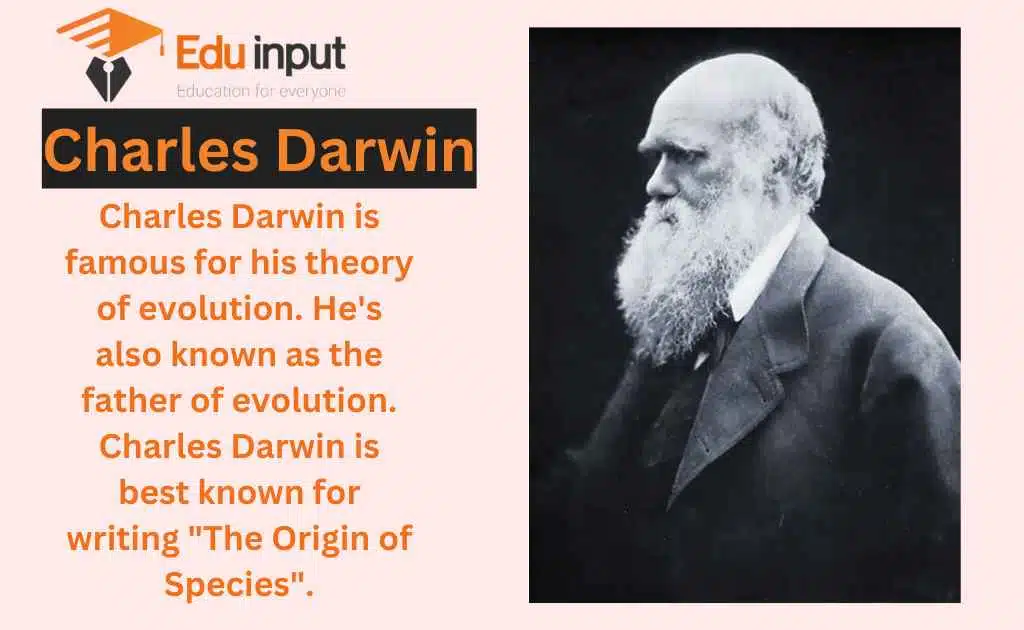
Gregor Mendel
The man who was the father of modern genetics is next on the list. He studied pea plants to find the dominant characteristics. The conclusion was referred to as the Mendelian Inheritance because certain traits are more dominant than others in the organism’s genetic makeup.
The publication of his experiments paved the way for others to follow in his footsteps. There were further studies on evolution and genetics laid down by man.
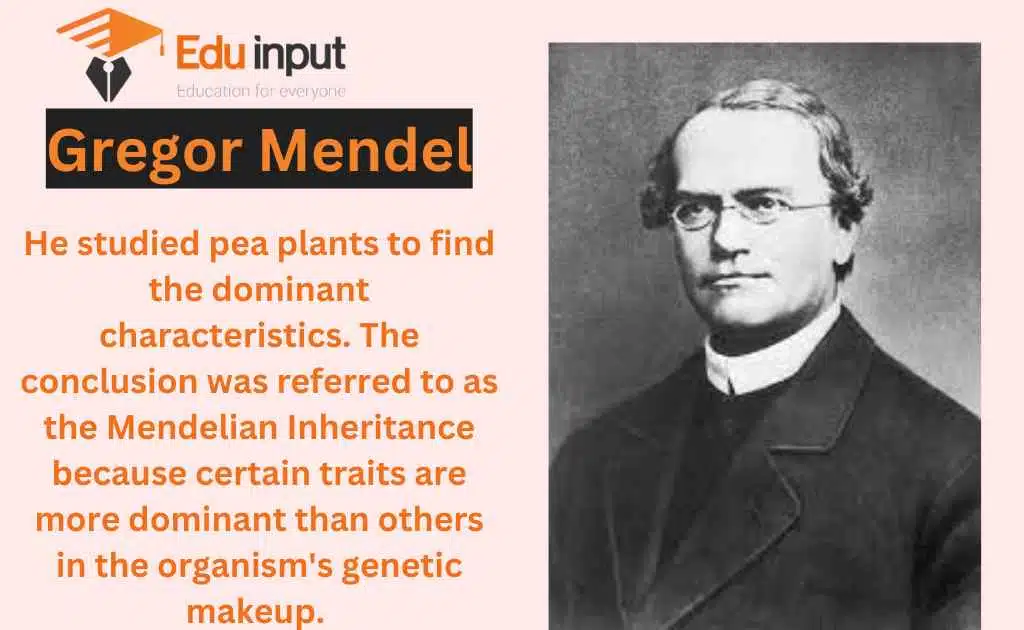
Rachel Carson
Rachel Louise Carson was born in Pennsylvania in 1907 and is credited with making a major impact on the world with her movement against pesticides. In the 1950s, Rachel started her research into ecology. The use of synthetic pesticides to kill insects was harmful to the environment.
The author of “Silent Spring” gave examples of the ill-effects of pesticides on the world. She was the leader of the environmentalist movement and eventually led to the establishment of the EPA.
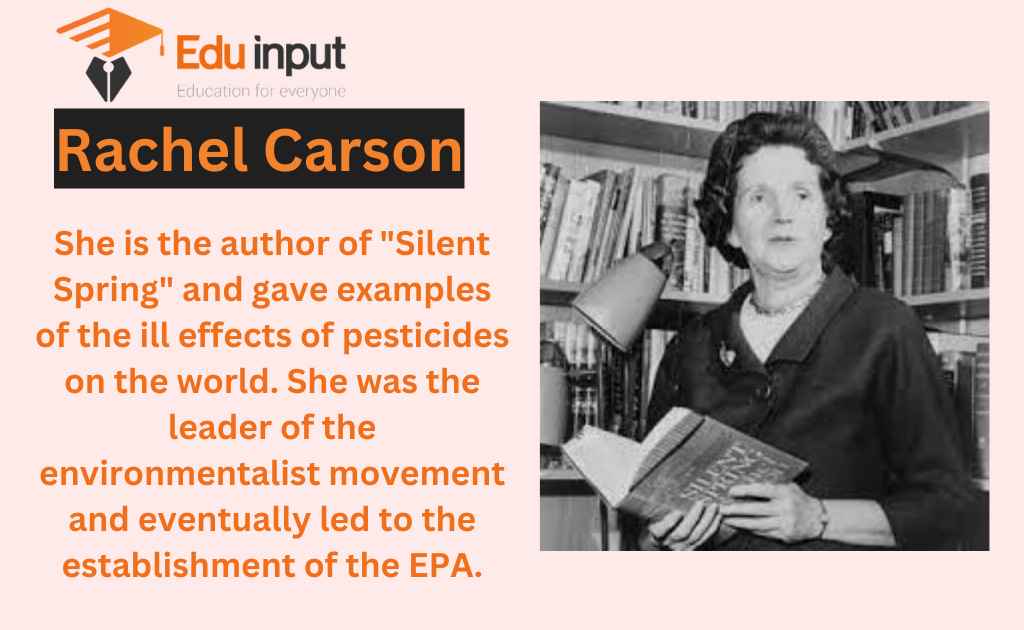
Oswald Avery
The chemical code of life was revealed by the Avery–MacLeod–McCarty experiment, which showed that the chemical code of life was passed through successive generations of organisms.
The concept of the gene as a unit of heredity was developed in the late 1920s by Hermann J. Muller and others. In 1927, Hans Spemann was awarded the Nobel Prize for his work on the formation of organs from cells. The early 1930s saw the discovery of DNA, the double-stranded helical molecule that is the carrier of genetic information.
Francis Crick and James Watson determined the structure of DNA, in 1953. The 1950s saw the development of molecular biology, which brought together genetics, biochemistry, cell biology, and physiology.
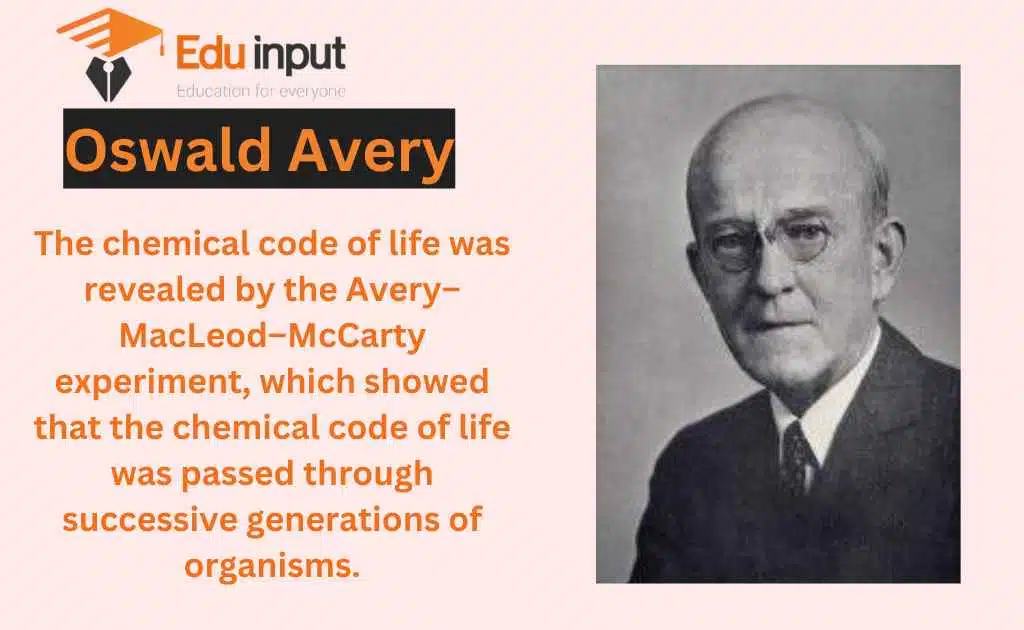
Aristotle
Aristotle, one of the first people to record biological knowledge in the history of the world was the ancient Greek philosopher, who is also known as the “Father of Western philosophy”. Galileo Galilei is considered to be the father of modern biology. The study of biology was instigated by him and opened the path of new possibilities for the upcoming generations.
The book covers almost all areas of biology and is well worth the read. You will be amazed at how many areas of science and engineering still use the same theories as before. He classified organisms without blood as plants and those with blood as animals, based on his observations. The author lived on the island of Lesbos for two years and wrote about sea life and zoology.
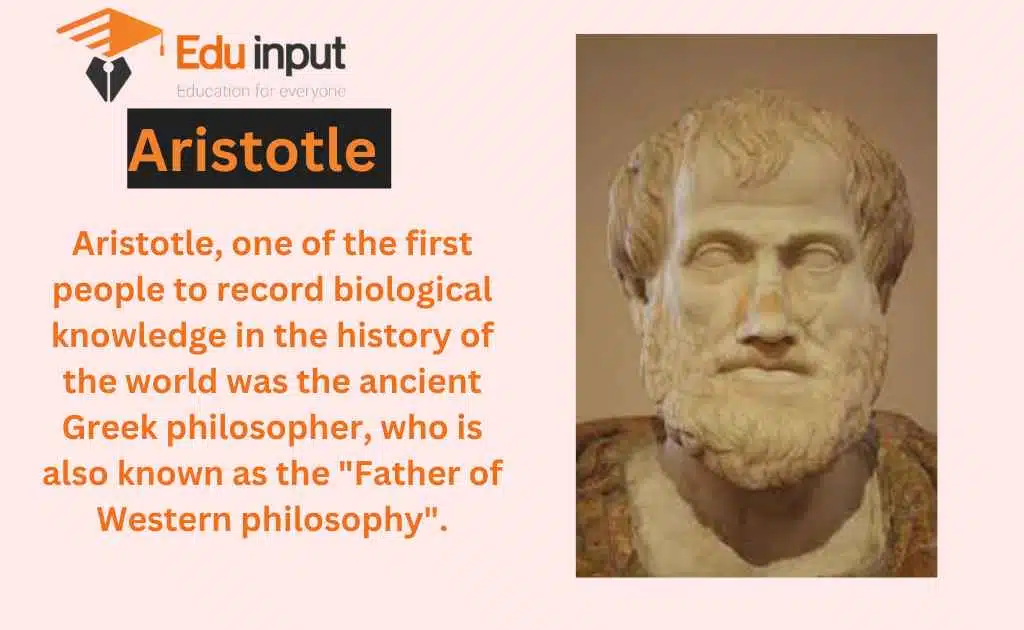
Louis Pasteur
Louis Pasteur came up with the idea of Pasteurization. One of the creators of Medical Microbiology is a renowned chemist and biologist who was born in France in 1822. He made many discoveries in the field of disease prevention.
The inventor of the pasteurization technique was Louis. Modern science has been impacted by his germ theory after he deduced it. Pasteur has discovered that the shelf life of food items has been extended.
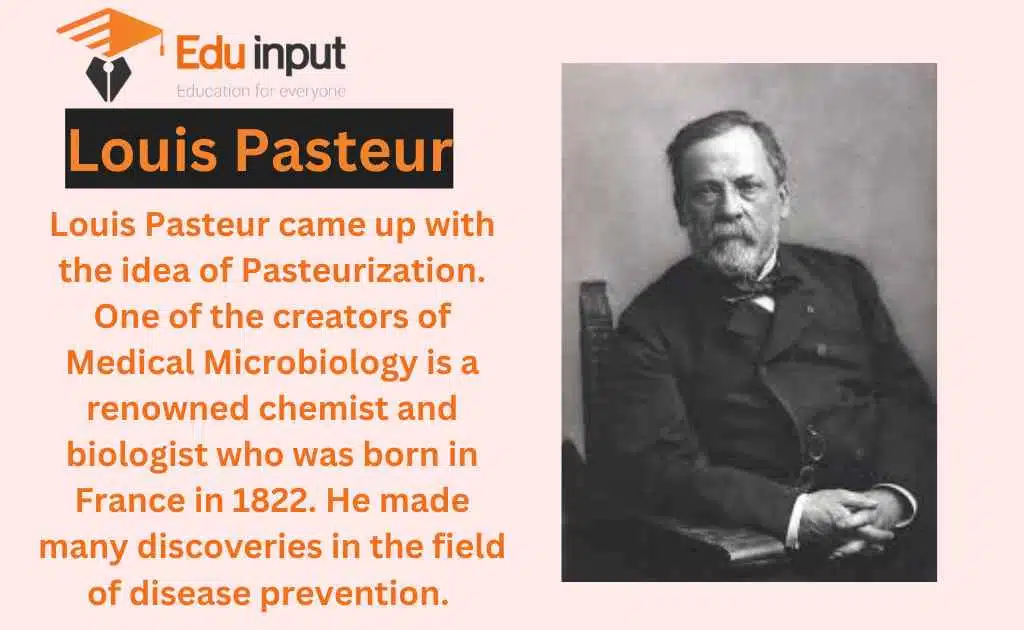
Friedrich Alexander
Friedrich Alexander von Humboldt was an explorer and a naturalist. According to a German Biologist, the continents of South America, Africa, and other states along the Atlantic Ocean used to be part of a single piece of land.
The place that is famous for its science is where the pioneer in the field of biogeography is located. Alexander combined the different branches of geology, biology, and meteorology to come up with this conclusion.
He is the first person to suggest that humans have a role to play in climate change. Today, we have a lot of knowledge that was influenced by the person in question.
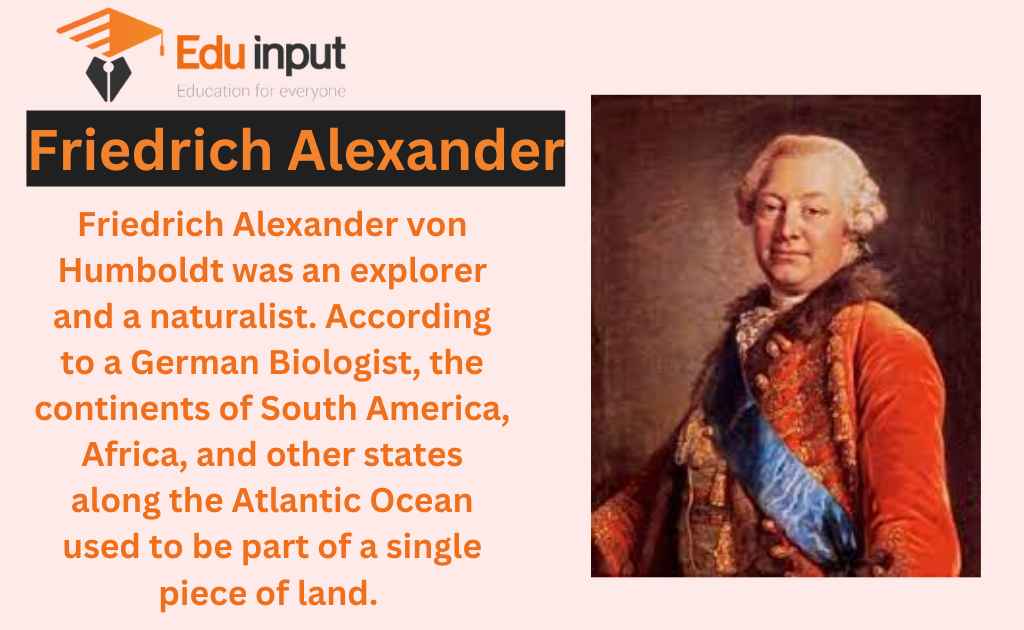
Antonie Van Leeuwenhoek
Antoine Van Leeuwenhoek, the Father of Microbiology, was born in the Netherlands in the 1632’s. He was the first human to observe single-cell organisms because of his curiosity in lens. He looked at the pond water and found small organisms.
The discovery of this famous microscopist has had a significant impact on science and technology. A self-taught scientist and businessman by the name of Antonie Van Leeuwenhoek had an interest in science that led to the discovery of microbes. He built around twenty-five of his own microscopes during his lifetime.

Carl Linnaeus
Carl Linnaeus was a famous zoologist and botanist. He was Swedish. He was born in 1707 and is known around the world for the identification, organization, and naming of living organisms based on certain characteristics. Linnaeus helped people understand the true nature of the world around them. His studies, or better known as botany, is widely used today.
Carl Linnaeus is famous for his classification system. He classified plants and animals into classes, kingdoms, genera, orders, and species. Thus the Linnaean taxonomy was a cornerstone for other biologists who further studied this field.
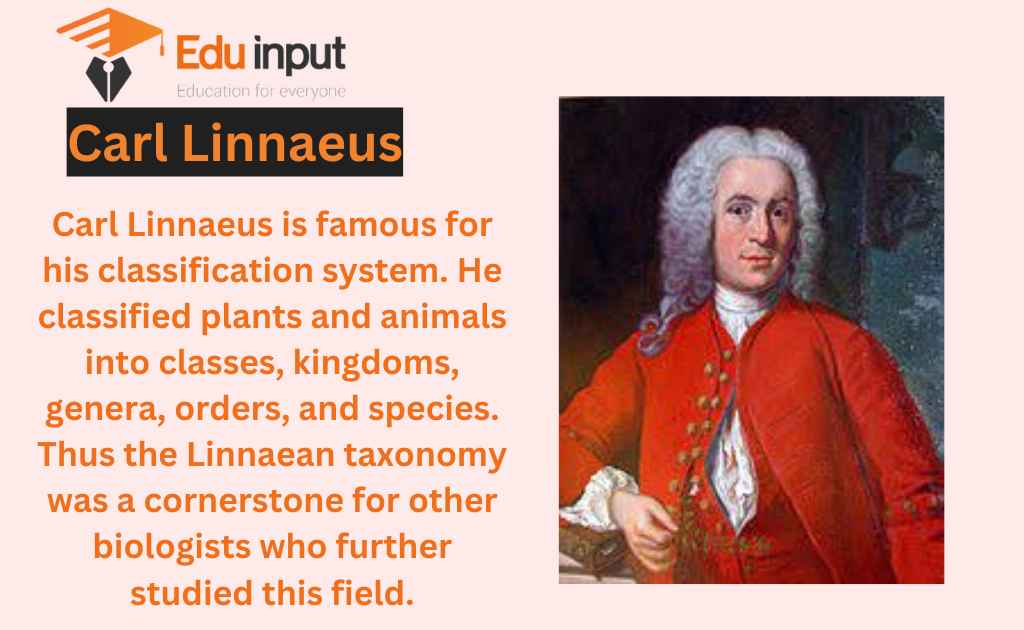
Linda Buck
Linda Buck was able to understand how our sense of smell works. Humans have hundreds of different types of odor-receptor cells that send signals to the brain’s olfactory bulb. This is where the majority of our sense of smell is located. The part of the nose that deals with the smell is called the olfactory epithelium.




Leave a Reply